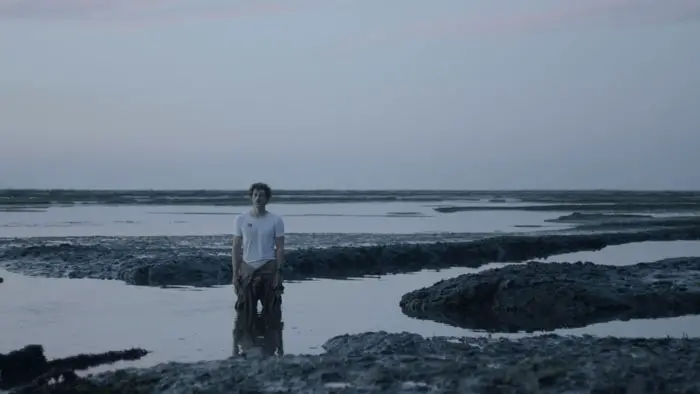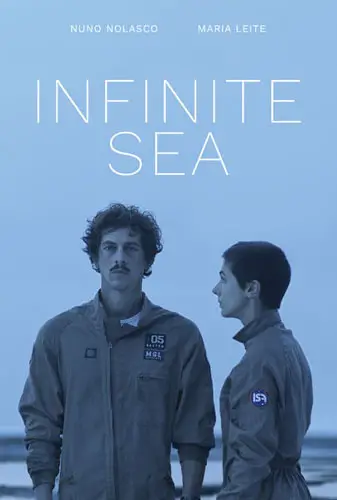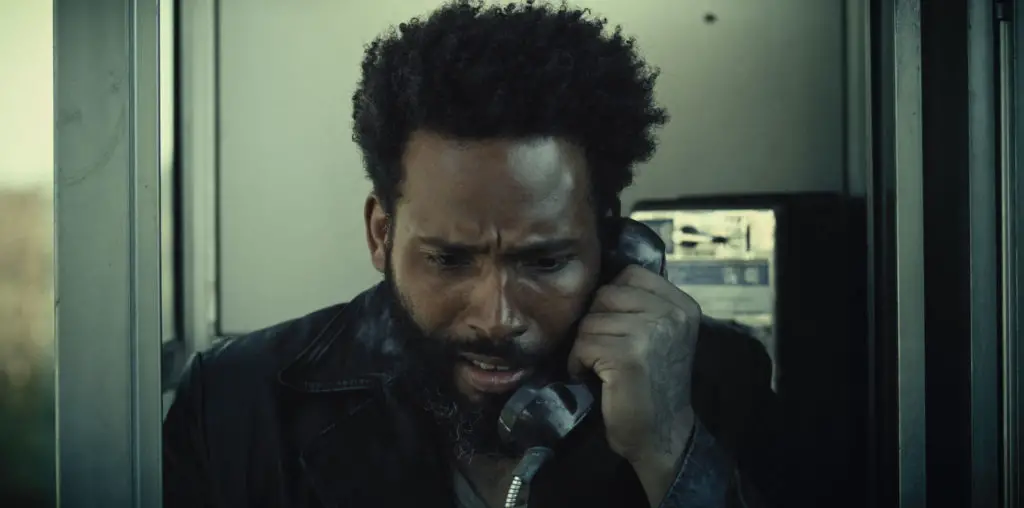
Written and directed by Carlos Amaral, Infinite Sea (Mar Infinito) is a Portuguese sci-fi drama set in a dusty city no longer bustling with life. It’s eerily quiet, mostly vacant, and serves as home to a select few occupants who were left behind. Most people fled to another planet called Proxima Centauri B to escape a dismal future on what I can only assume is post-apocalyptic Earth. Those wanting to hitch a ride to the new world must apply, but not every candidate is accepted. Miguel (Nuno Nolasco) and Eva (Maria Leite) were rejected and left to live on a deteriorating planet.
The film begins with serene and dazzling imagery of space accompanied by a voice-over heavily alluding to the concept of fate. “If we went, do you think our paths would cross?” This refers to Miguel and Eva, two strangers who developed a relationship while living in a desolate environment. Would they have met if they were sent to the new planet? It’s impossible to know, but life is, in and of itself, an enigma.
Initially, Miguel’s main objective is to hack his way into securing a spot on the flight manifest for the next rocket launch. But his efforts are unavailing. Having lost all hope, he submerges in a pool and begins to lose consciousness but is saved by Eva. Both basking in despair, their relationship deepens. There are quietly moving scenes of them together. Miguel teaches Eva how to ride a bike. While lying in bed, Eva teaches a deprived Miguel how to sleep. Every interaction between them, be it verbal or non-verbal, rings true.
Nolasco is outstanding, effortlessly portraying a forlorn character that potentially has a self-destructive doggedness. Playing opposite to him is an exceptional Leite. Her confident demeanor and understated delivery vivify the existential-heavy dialogue. A line like, “I won’t let you drown,” is certainly unsubtle, but the actor doesn’t overplay it. The performances are crucially discreet throughout Infinite Sea.

“…Eva teaches a deprived Miguel how to sleep.”
Through Miguel and Eva’s relationship, Amaral probes the importance of human connection and the intricate concept of purpose and how it materializes. Is purpose pursued and then attained either through achievements or relationships? Or does it come more naturally? The filmmaker broaches these questions and trusts the audience to work through them on their own terms.
Miguel is a finely constructed character, extremely lonely but determined to escape a dour reality. However, after bonding with Eva, his priorities shift, and he’s unsure if this is a favorable development. This gnawing uncertainty perhaps causes him to conceive a reality in which he made it to the new planet. This portion of the narrative feels less fleshed out but remains fascinating, nonetheless, as he ponders the durability of love.
Whether the romance of Infinite Sea takes you or not, Amaral and director of photography Jorge Quintela mold a moody aura. They apply blue/grey hues, elegantly stage underwater shots, and perfectly utilize spacious settings such as a lived-in apartment, a cleared-out warehouse, and vast, marshy terrain. They also foreground how, even in moments of closeness and conversation, the characters still appear trapped by an underlying hopelessness. In the underwater shots, Miguel and Eva engage with the water as if it is alive or a portal that mentally takes them to a better place.
Infinite Sea is a subdued and somewhat ambiguous existential odyssey. Yet, while the profound gloom of Amaral’s vision is a bit much, it is an intriguing and beautifully made drama prioritizing the need for connection and purpose.

"…intriguing and beautifully made..."


